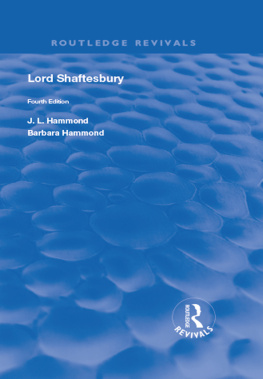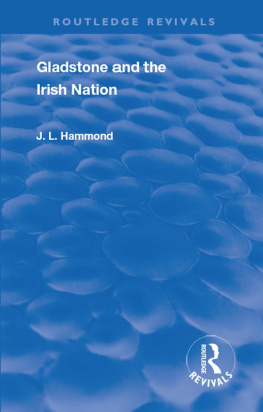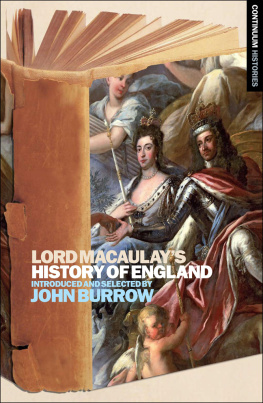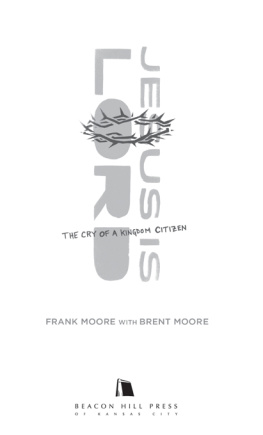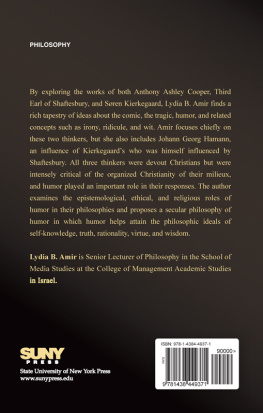First published in 1923 by Frank Cass and Company Limited by arrangement with Longmans, Green and Co. Ltd.
This edition first published in 2018 by Routledge
2 Park Square, Milton Park, Abingdon, Oxon, OX14 4RN and by Routledge
52 Vanderbilt Avenue, New York, NY 10017, USA
Routledge is an imprint of the Taylor & Francis Group, an informa business
1923 Taylor & Francis
All rights reserved. No part of this book may be reprinted or reproduced or utilised in any form or by any electronic, mechanical, or other means, now known or hereafter invented, including photocopying and recording, or in any information storage or retrieval system, without permission in writing from the publishers.
Publishers Note
The publisher has gone to great lengths to ensure the quality of this reprint but points out that some imperfections in the original copies may be apparent.
Disclaimer
The publisher has made every effort to trace copyright holders and welcomes correspondence from those they have been unable to contact.
A Library of Congress record exists under ISBN:
ISBN 13: 978-0-367-14900-0 (hbk)
ISBN 13: 978-0-429-05385-6 (ebk)
PREFACE OF THE GENERAL EDITORS
WE have taken advantage of the issue of a cheap edition of this book to print, in an Appendix, a very interesting paper, written by Gladstone after reading Hodders Life of Shaftesbury, which has been lying among the Gladstone documents for half a century. Mr. Tilney Bassett, who found it, called our attention to this paper, and the Gladstone Trustees kindly gave us leave to publish it.
Since this book was written, an excellent study of Shaftesburys career has been published by Mr. Wesley Bready, laying stress on aspects of his work and life to which less attention had been given in these pages. Mr. Wesley Bready formed the opinion that this book, the work of persons who did not share, or pretend to share, all Shaftesburys views, was wanting in fundamental sympathy with his character. The same impression has perhaps been given to a few, though we think to a very few, of its readers. A few words on the subject are therefore perhaps not out of place.
The literature necessary for a study of a mans character and career would be incomplete without an interpretation by a writer in complete agreement with him. Mr. Hodder made such a study of Lord Shaftesbury; Mr. Wesley Bready has now made another. But it is interesting and useful also to see how such a career strikes students who admire the character of a man and regard his career as of capital importance, but do not share all his views, or even views of his to which he would attach great importance. We find it difficult to believe that anybody who has the patience to read this book to the last page will have any doubt of the sincerity or depth of the writers admiration for Shaftesburys character and achievement. Nor do we think that the admiration of those who disagree with a mans views and outlook in some important respects carries less weight than the admiration of those who find nothing to criticise or question in his opinions and conduct.
This is specially true, we think, of Shaftesbury. For the chief proof of his influence on his age is surely to be found in the impression he left on men and women outside his own religious circle. He thought badly, as we know from his diary, of most of the public men of his day. The public men of his day, on the other hand, thought very well of him. Gladstones tribute is all the more remarkable because he took up his pen just after reading Shaftesburys caustic criticisms of his own conduct and motives. Gladstone came, like Shaftesbury, from an Evangelical nursery, and we can see from his notes that, as he read Shaftesburys soliloquies on religion, he found a great many reflexions with which he was in warm sympathy. From that common tradition he and Shaftesbury had diverged along very different paths in life. Another of Shaftesburys contemporaries, who, like Gladstone, had shared his Evangelical upbringing, diverged still further. When Manning read Shaftesburys Life he was moved as Gladstone was moved by its story.
I have just ended Lord Shaftesburys Life. It was a noble and unique Christian manhood. What a retrospect of work done. It makes me feel that my life has been wasted. The unity, consistency, and perseverance of his life were wonderful. He took human suffering and human sorrow, and the helplessness of childhood, and the poor, as the end for which to live. He spent and was spent for it, and his own life was a suffering life like the Man of Sorrows going about doing good.
The Evangelical movement, in giving to public men a new sense for the serious purposes of life, can thus claim a share in three careers, so important and so diverse as those of Shaftesbury, Manning, and Gladstone. Of the three men Shaftesbury alone kept to the end of his life the Evangelical outlook, as well as the Evangelical temper. But he kept too the regard of Manning, whose religion he thought hostile to truth and virtue, and of Gladstone, though on the Irish questions which were so close to Gladstones conscience for a quarter of a century he thought Gladstones remedies fatal to order and justice. To such a man students of social history can give their full sympathy and admiration, even if they often disagree with him, just as they can praise the Evangelical movement for the fine spirit of its sons, even if they think that its influence, often inspiring and ennobling, tended sometimes to close windows in the English mind.
HEMEL HEMPSTED,
August, 1936.
PREFACE
THE writers of this volume have not attempted to give an exhaustive account of a singularly many-sided career. They have aimed at describing Lord Shaftesburys work and character and the significant contribution that he made to the politics and history of his age. With this object before them they have omitted many incidents which, though interesting in themselves, do not illuminate or affect his place in the life of the nineteenth century.
The late Mr. Edwin Hodder published in 1886 a large biography of Lord Shaftesbury in three volumes. In preparing this book Mr. Hodder was allowed the use of Lord Shaftesburys diaries, and he received some guidance from Lord Shaftesbury himself. Messrs. Cassell & Co. have been kind enough to permit the writers of this volume to quote from Mr. Hodders work, and the writers desire to thank them for this indulgence. They wish also to make their acknowledgments to Messrs. Hodder and Stoughton, who have allowed them to quote from two letters printed in the volume Lady Palmerston and her Times, by Mabell, Countess of Airlie, published last year.

